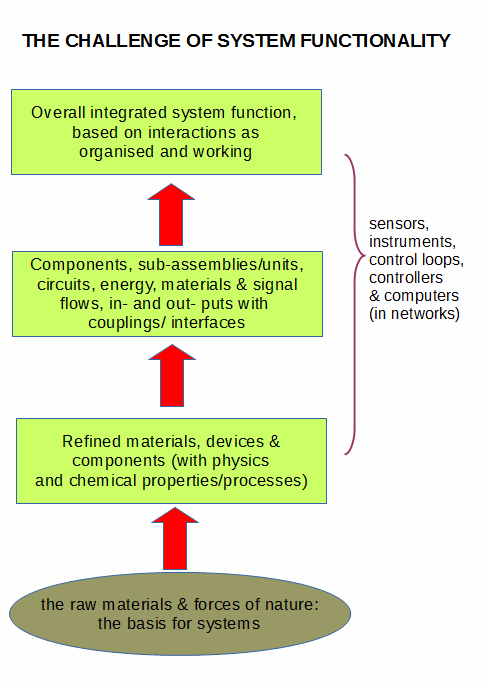One of the common failings of thought in the Caribbean is the tendency to overlook the critical importance of getting details right, and to therefore miss why it is important to work through the analysis and the debugging- troubleshooting- development process taking pains and time to get things right.
That means it can be hard to get a new approach just right first time up, but that does not mean that one can then shoot holes in it and dismiss then go back to business as usual.
We have to learn to swallow the cost of partial successes, and build on them to gain the experience base for virtuoso performance that makes it LOOK easy.
Where also, this is connected directly to the Hayek investment triangle that culminates in a perfected product on the market:
So, let's pause and watch a video on a foray into rocketry by an electrical engineer, a mechanical engineer and a builder, courtesy "How hard can it be":
How hard can it be?
Quite hard.
(For instance, a rocket is in effect a broom supported and lifted from below, on the tip of a "finger," with the lifting force being a controlled explosion creating a jet. The system is inherently unstable, highly non-linear . . . thus not well behaved . . . and likely to be self-destructive. Notice, here, the bunkers in the amateur rocketry launch field. And notice how the potential for failure rises with scale.)
In general we face:
And, if it is not hard, then it's easy to copy and so you are back to the game of competing on costs and price, which -- long term -- spells economic death.
So, we need to shift to an exploratory and entrepreneurial seed-sowing mindset [a sower went out to sow . . . ], that willingly bears the risk and cost of discovery and development, to build a foundation for future success. Recognising, that -- on track record -- successes will pay the cost of failures and that without risk, there is no long term hope for advance. END
PS: On building rockets, watch:

